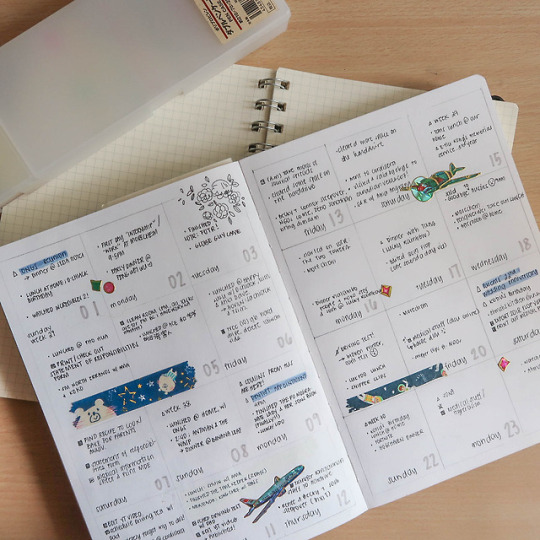Photo
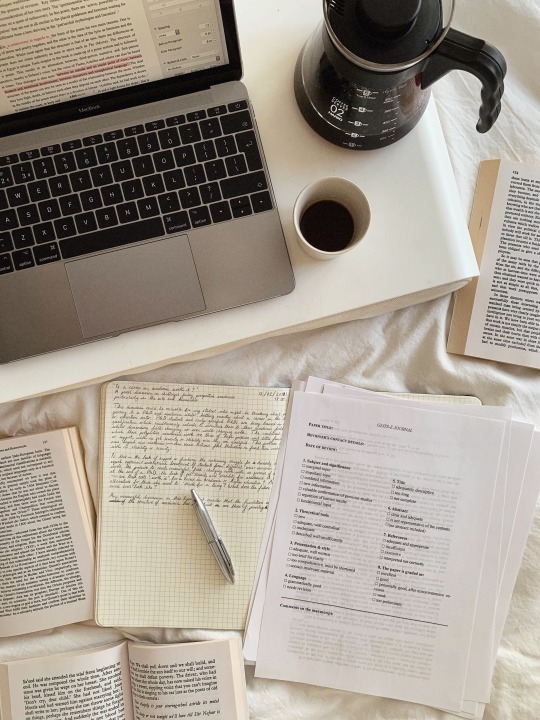
Two things I’m working on today: I am the co-editor of a special edition of the Goldsmiths literature journal (GLITS), so I’m currently checking over peer review sheets and manuscript feedback from our board of editors.
I am also writing questions for an event I’ve been putting together as part of Alternative Careers Week at Goldsmiths, which is a conversation about the challenges facing prospective academics between myself, Dhanveer Brar, Beth Guilding, Jake Hall, Akanksha Mehta and Roberto Mozzachiodi.
You can find the details of the event here: Is a Career in Academia Worth it?
9K notes
·
View notes
Text


really in love with my workspace and bedroom lately. Messy but warm.
my instagram
7K notes
·
View notes
Text
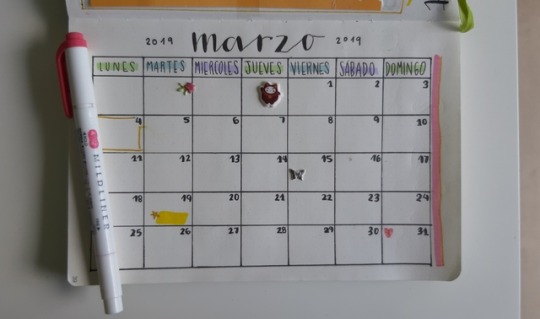
03/03/19
I am back! 🌃
This year I've started bullet journaling and I couldn't be happier :-) here is my monthly overview for March. ⭐🌔🌙
#studyblr#study motivation#studyspo#accio jasmine!#ibsurvival#ib#studywithinspo#study goals#studyinspo#study aesthetic#study blog#history#zebra mildliner#study hard#school#study help#ib student#student#study guide#study inspiration#goals#muji pens#study break#study challenge#study essentials#study for exams#bullet journal#bujo#bujo spread#bujolove
2 notes
·
View notes
Text
college advice from someone who’s been on both sides of it

So I’m finishing up my Ph.D. and preparing to depart for the real world (no, just kidding, I’m going to be in school forever, only in a different capacity) and I thought I’d put together a list of some college tips to share with you all. I graduated with my B.A. in 2012, magna cum laude, with 2 majors, 1 honours thesis, 2 on-campus jobs, and 3 music things. Since then, I’ve gone to grad school and also taught six semesters of first-year seminars. Now I’m going on the job market for teaching positions. All of this means that I’ve seen both sides of the college experience, as a student and as an instructor. There are a lot of great & useful college advice posts going around studyblr this time of here, and I wanted to add my own. I hope it’s useful. So here we go, with a “read more” because it’s long (sorry if you’re on mobile):
academics
find your classrooms ahead of time (profs’ offices too)
figure out how long it will take you to walk between places
figure out where your best seat will be & claim it
say hi to the people next to you, learn their names
take notes in class
take advantage of extra credit
try your best not to fall asleep in class (and if you do fall asleep, apologise to the prof afterwards)
bring your glasses if you need them, don’t be stubborn about it
check out the library, wander in the stacks, talk to the librarians
figure out how & where to print
buy used books/textbooks, or rent them, but be careful with ebooks (some profs don’t allow them)
plan breaks into your class schedule, or block everything together, whichever works best for you
work out the pros & cons of 8am classes and/or night classes
plan ahead – have a planner, put things in it, do them
fake deadlines are a thing (write down earlier deadlines, trick yourself into meeting them, bask in satisfaction)
grades won’t be what they were in high school
keep in mind GPA values: a 3.5 will see you graduating with honours
be nice to the departmental administrative staff, thank them for helping you (even with small things)
office hours versus emailing profs: both will get your questions answered (probably) but if you can go and talk in person, do it
profs & TAs are people too, they have lives, they have bad days
if something comes up, talk to your prof, be honest but don’t overshare, just show them you’re trying
on that note, try
Keep reading
13K notes
·
View notes
Photo


22/08
whoa, it’s been a looong time since i posted anything with my bujo (as you can see there’s ten TEN days of difference between my tuesday and thursday. crazy)
today 30 seconds to mars released their first single since 2013 honestly, procrastination goals
2K notes
·
View notes
Photo

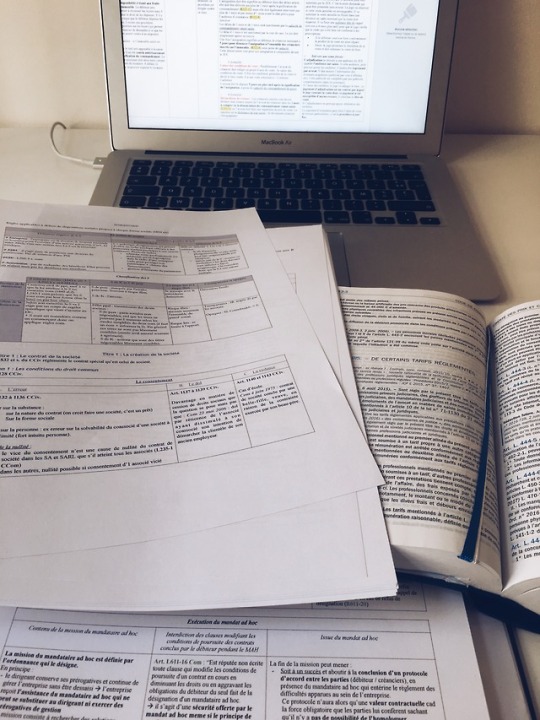
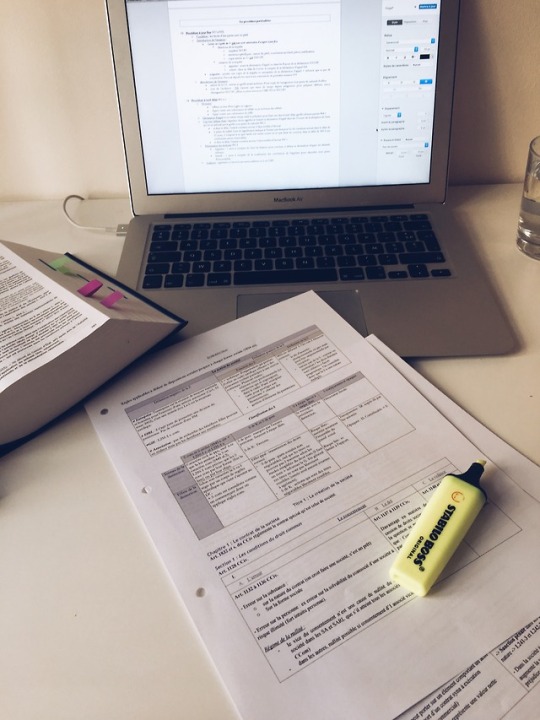
only two weeks left before the bar exam … intense revisions to come!
4K notes
·
View notes
Photo

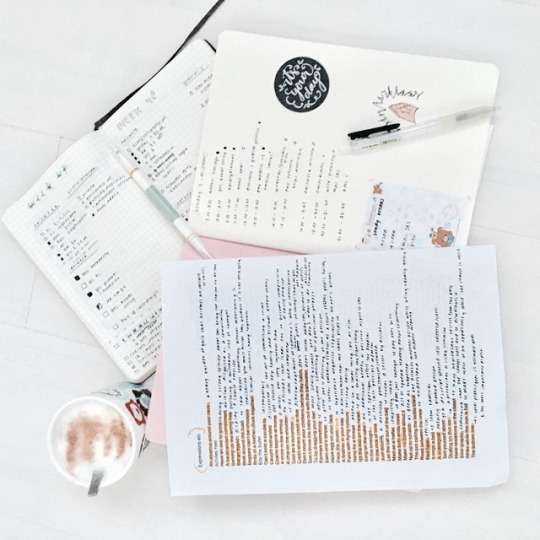
[27.12.17] Getting back to schoolwork after celebrating christmas with the family. Wanting to start the new year without too much work to be done. Also, thank you guess for the 4,5 K!! Wish you all an amazing 2018
8K notes
·
View notes
Photo
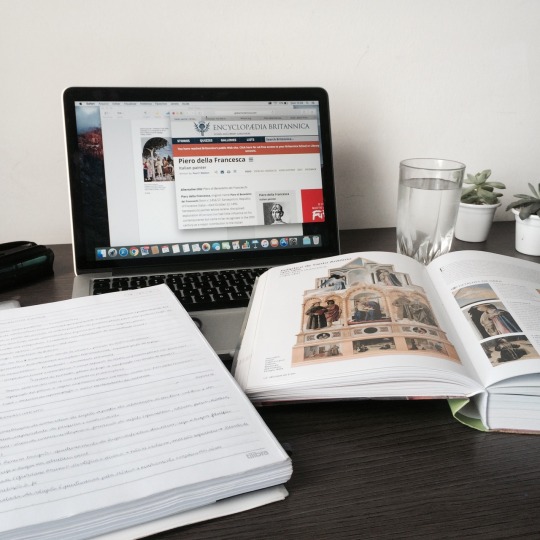
15/05/16 || Doing an Art History assignment due tomorrow, cause I’m organised like that.
5K notes
·
View notes
Text

So I was supposed to post this yesterday but I forgot to plan it beforehand and get it posted at the right time 😅 and also, I have actually made a couple of masterposts beforehand but they got ate up by tumblr 😒
714 notes
·
View notes
Photo
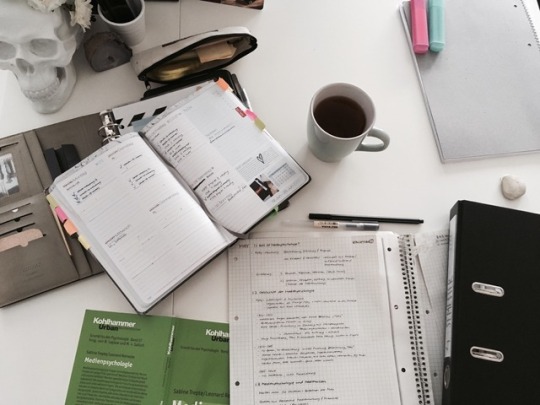
25/june/2017//
little morning study sesh before work.
11K notes
·
View notes
Photo
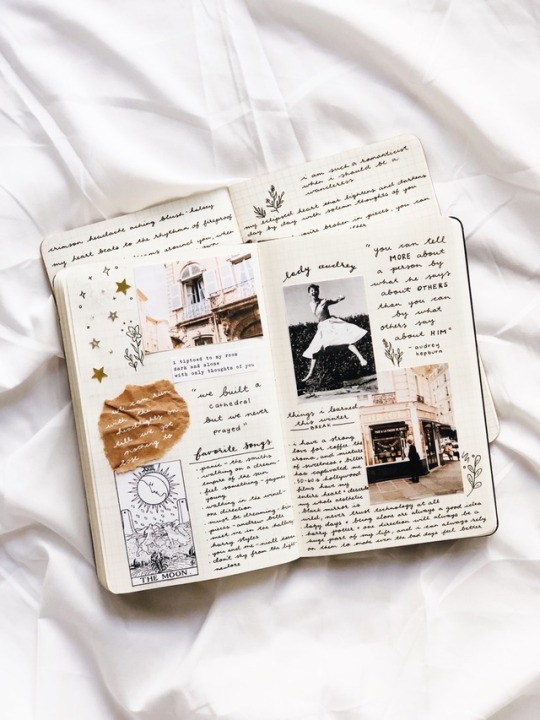


✨anything celestial would be considered my aesthetic✨
13K notes
·
View notes
Photo


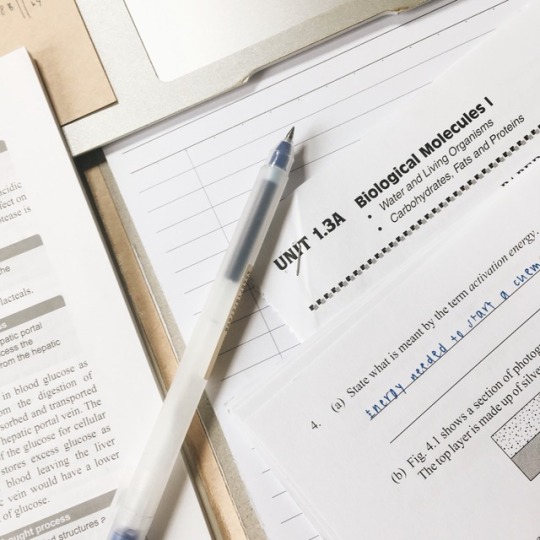

100618 ↠ feels pretty good to hit the books again actually
13K notes
·
View notes
Photo

09.04.2017
I’m back! Time to study maths again! Tomorrow = an original post!
4K notes
·
View notes
Text
Results are in!
English A: Literature (HL)- 6
Spanish A: Language and Literature (SL)- 7
general tips for the interactive oral commentary! MASTERPOST
i recently did my IOC for both Literature HL and Spanish Language and Literature SL. even though i do not have my grades yet, i can confirm that i have passed :-) here are some tips for studying and doing an effective IOC.
studying for Literature HL
when to start?
for my HL subject, i started studying two weeks before every day. this may seem like a lot, but there was a lot of material to cover. i would have started a bit earlier actually, since i still had poems to analyze the day before.
how to study?
first, get familiar with the literary features. i looked them up in IB Thinking Subjects, but here’s my summary:
→ sound
alliteration: close repetition of words beginning with the same sound or letter.
assonance: the close repetition of vowel sounds.
sibilance: the close repetition of ‘s’ or ‘z’ sounds.
consonance: close repetition of consonant sounds when there is a change in the intervening vowel.
onomatopoeia: word/words whose sound/sounds resembles the thing denoted.
plosive: sounds that are made by momentarily stopping the airflow from the lungs (k, p, d, g, t)
fricative: sounds made by narrowing the channel of air (v, th, sh)
euphony: harmonious, pleasing musical sounds.
cacophony: discordant, unmusical or harsh sounds.
→ poetic metre (note: i did not take into account this. however, your teacher might ask for it)
iambic
anapestic
trochaic
dactylic
spondaic
→ diction and syntax
(nouns, pronouns, adjectives verbs, prepositions, conjunctions, adverbs)
take into account: what is the word order?
what kind of sentence is it? (declarative, interrogative, exclamatory, imperative)
→ imagery
visual
auditory
tactile
olfatory
gustatory
kinesthetic
thermal
→ metaphor
metaphor: a connection made between two things, usually disconnected.
simile: direct comparison made between two things. use of ‘as’ or ‘like’.
personification: technique of giving non human things human characteristics.
synecdoche: representation of the whole of something through a description of a part of it.
metonymy: repetition of the whole of something through a description of something associated with it.
→ structure and form
genre
formal structure
stanza
rhyme
lineation
→ tone and register
persona
tone
voice
note: you DO NOT have to know all of these literary features. make sure to know which are the most predominant in the poem being analyzed and focus on that.
i bought a notebook and analyzed every single poem again. focus first on identifying the literary devices, then the actual meaning.
example of my analysis:
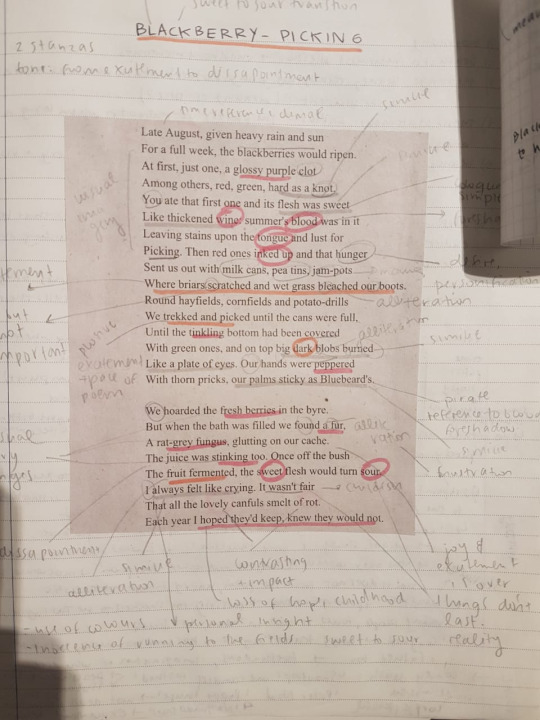
after doing this, i planned out my interactive oral commentary. do not learn this by heart, use it as reference and practice to get used to the timing!
8 min planning:
→ introduction (less than 30 seconds! get straight to the analysis)
1) present the poem. example: [Blackberry Picking] is a poem written by [Seamus Heaney], an Irish poet born in 1939.
+does it belong to a specific collection? does this collection have a particular theme? what does this collection mainly deal with?
what is the poem about? give a brief summary, consisting of one sentence. “[BLACKBERRY PICKING] is about…”
*you can make reference to the title in the introduction. what’s it’s meaning?
thesis statement. this is the most important part of your commentary, you will have to link everything to this. make sure that all of your subpoints are responding to your thesis, make it relevant! because you will have analyzed the poem already, it is easy to think of a thesis. ask yourself: what is the poet trying to show/explore/encounter/recall/other in this poem?
For example, my thesis in this poem was: “In [BLACKBERRY PICKING], [Heaney] explores the loss of innocence”.
subpoints (AKA devices). when presenting devices, i would say “[Heaney] will effectively do this by the use of a particular structure, imagery use of metaphors”. i do not believe that this is a very flexible method, but it worked for me.
the introduction should go straight to the point! make sure to not surpass 50 seconds.
→ subpoints (i tend to choose 3): how does each subpoint respond to the thesis statement? what effect does it create? use one sentece at first to show this effect. support this by evidence!! always!! “This can be seen for example in line 3 where it says “…””
make sure to analyze your evidence itself as well. are there any other literary devices? what effect does it create?
provide more than one example for each subpoint!
don’t rush when making your subpoint analysis
→ conclusion: go back to the thesis statement. appreciation of writer’s choices. how do these subpoints verify the thesis statement?
*remember that the tone and mood of the poem must be established somewhere in your commentary.
tips for the 8 minute commentary
you should practice before, a lot. record commentary’s, ask your teacher for feedback, see improvements.
try to use your personal interpretation. the IB wants to see YOUR analysis, not one by shmoop! (you can, of course, use ideas from it, but don’t base it only on research of the internet).
deal with the obvious but go in depth!
transition words are key! how to pass from one subpoint to the other? Words such as ‘moreover’, ‘so when we take a look at…’, ‘lastly…’ will make your commentary seem casual, it will definitely sum up points.
don’t translate lines!!! please don’t paraphrase. focus on the effect that a certain line creates. ALWAYS USE EVIDENCE, for anything said.
show the mechanics, how the meaning is created by using a device.
do not explain what devices mean.
try to relax! i was very nervous at first but when 3 minutes had passed i had already calmed down.
please speak slowly and relax. i did the mistake of speaking very rapidly in my practice IOC’s and did 6 minutes instead of 8.
do not forget the guiding questions! you must answer these implicitly, they should be casually added into your analysis.
extra tips
don’t commit the same mistake as i did and attempt to calculate/guess what poem was selected for you. it is no use, study everything if you want to be confident and not expect any type of surprises.
bring colorful pens and highlighters for your planning time.
some links that helped me:
29/30 IOC Sample
https://www.youtube.com/watch?v=8dR04LDgow0&t=72s
IOC REVISION
https://www.youtube.com/watch?v=a_nbDMjNmT8&t=180s
when it’s time to plan
take a deep breath. do not write everything you will say, but do write key words, evidence, and transition words. add the answers for the guiding questions implicitly into your commentary.
definitely do write your introduction as it will be the first thing you will say and nerves can mess it up if you say it without reading!
1) biography (by who, collection)
2) meaning
3) thesis
4) list subpoints
5) write the first sentence for each subpoint! (+evidence)
make sure to have a conclusion that wraps up everything!
final tip: if you studied enough, i guarantee that you will pass :-) it is definitely a very nerve-wrecking situation but once you get over it everything will be fine! if you need any advice or more help please message me.
Seamus Heaney: if by any chance you got to analyse Heaney’s poems as well, i have some analysis i can definitely pm you if you need it!
discussion (10 minutes)
it might seem like a lot, but time goes fast.
for the discussion, read the texts again. i know it’s a lot of work, but it should refresh your memory and it might help you understand information that you hadn’t before. i used a free trial of Audible to re-read Macbeth!
do not make summary’s of the texts, but look up any important questions that your teacher might ask you at first in attempt to begin a discussion. practice answering!
for a level 7, a candidate is expected to know some quotes! learn from each text at least 15 which are of course, relevant. however, do not use them forcefully in attempt to show that you remembered quotes, but use them when they come in handy.
-take down notes on symbolism, theme, characters, plot, etc.
please remember that the discussion is not an interview. this should be a back and forth discussion with your teacher. make it seem casual (but still use appropriate vocabulary)
196 notes
·
View notes



